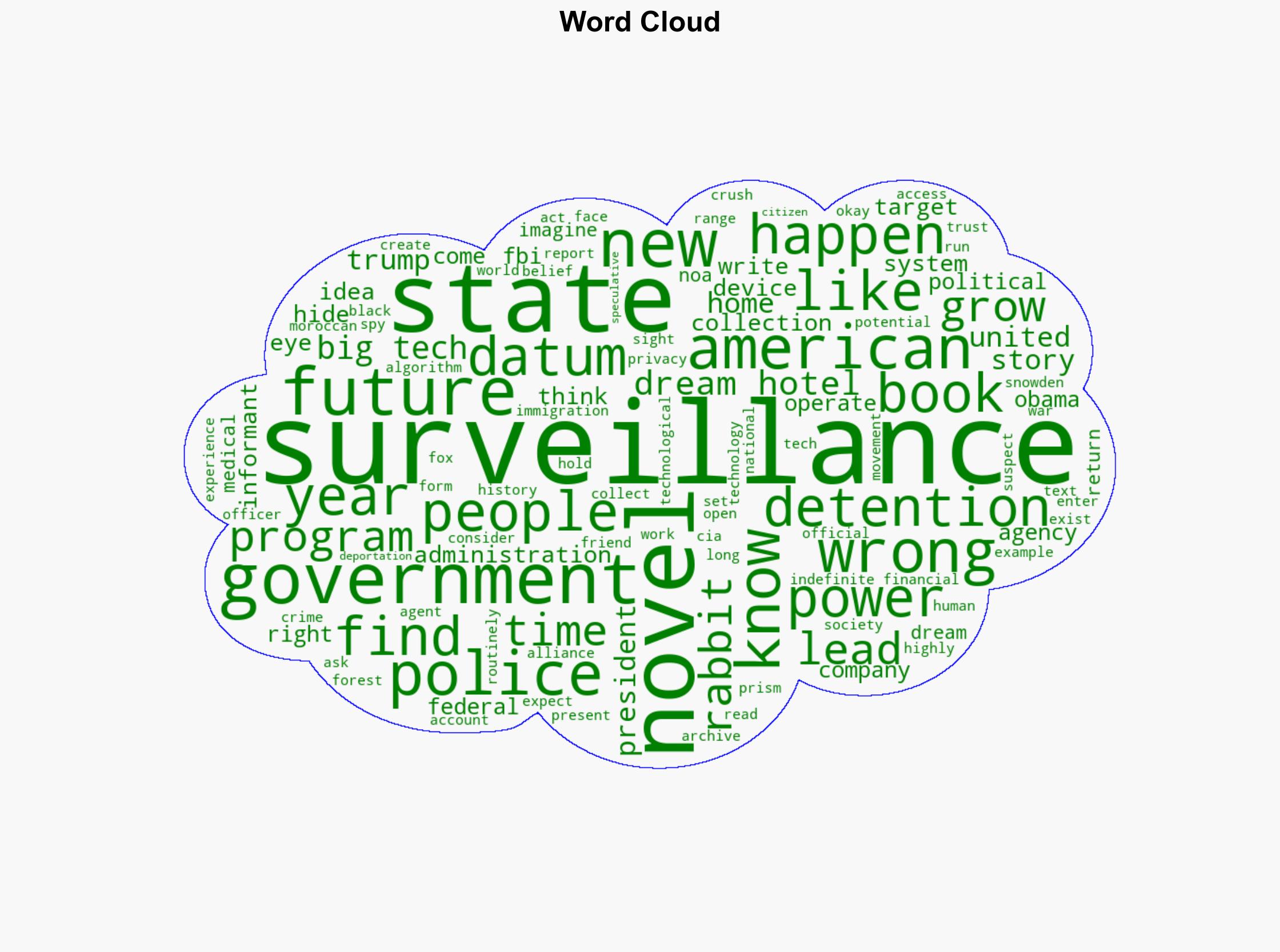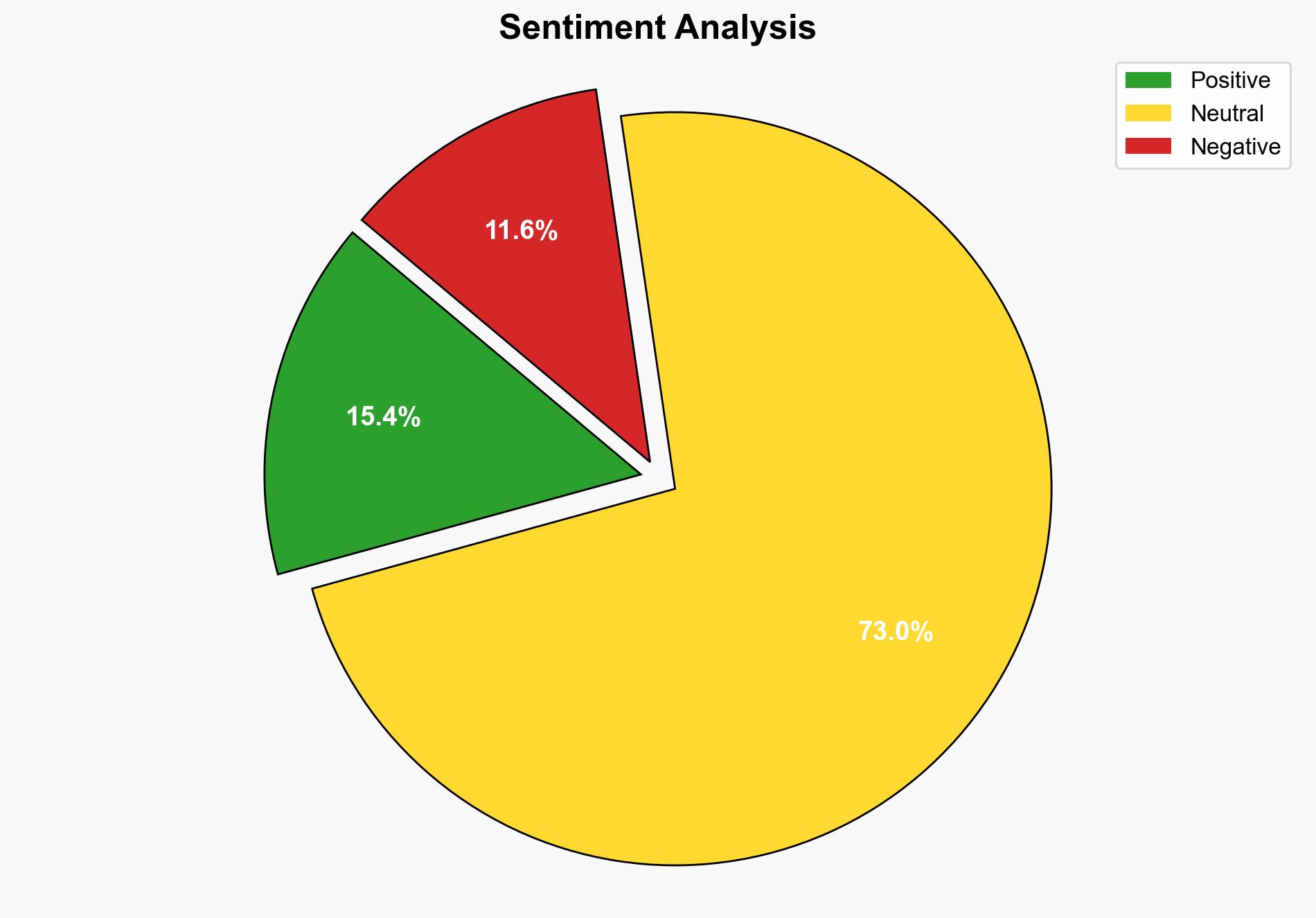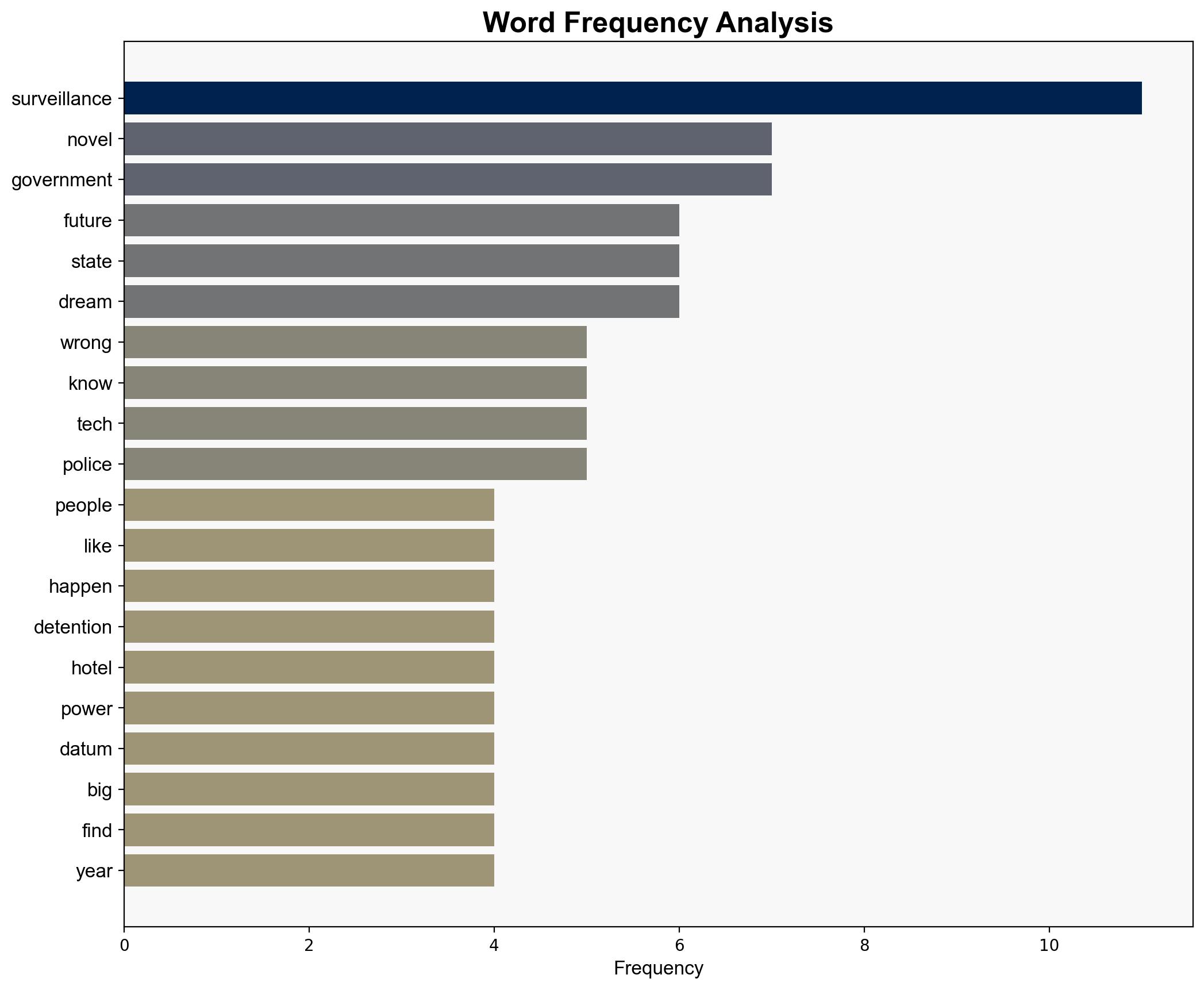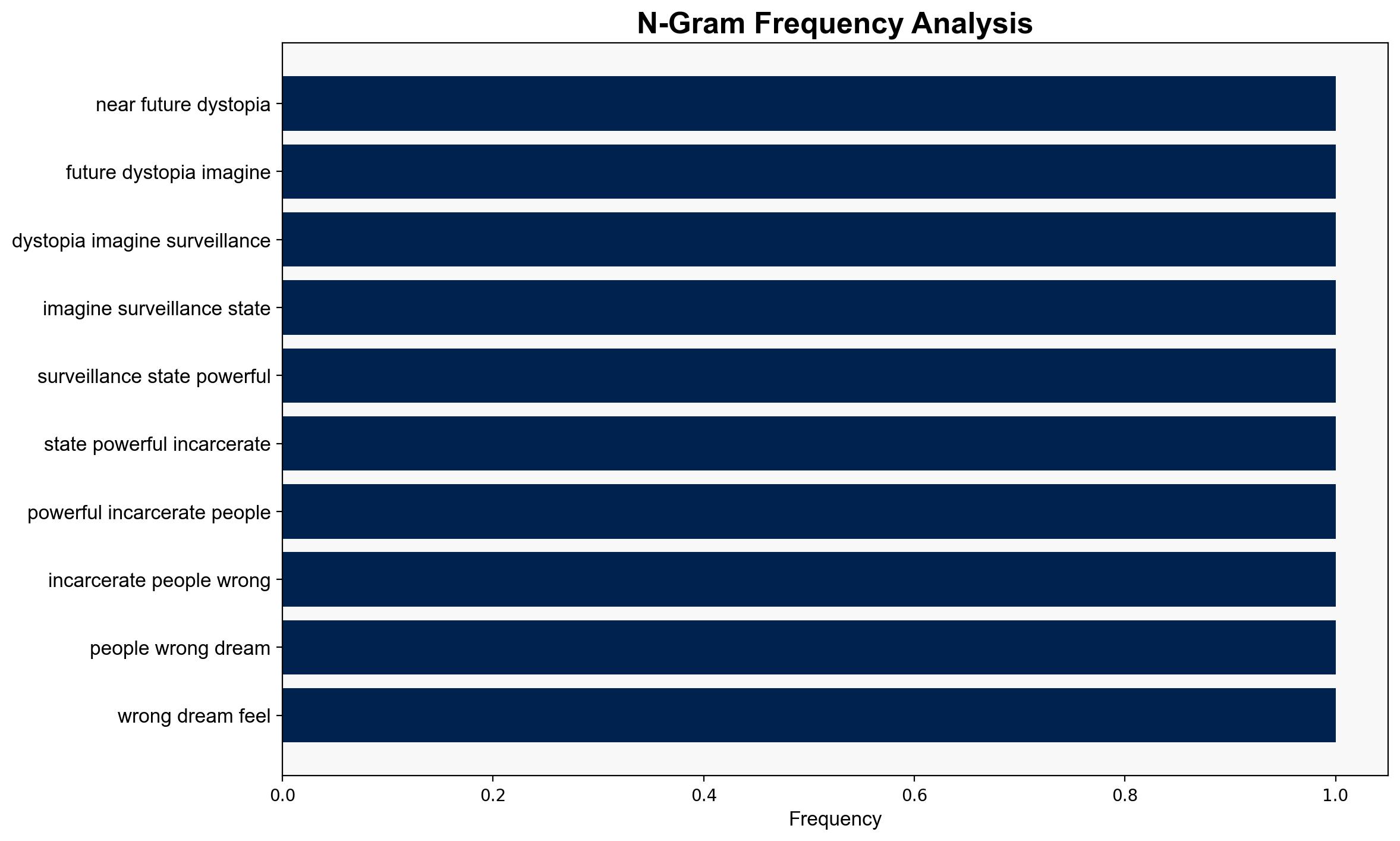What Fiction Can Predict and What It Cant – The Atlantic
Published on: 2025-04-25
Intelligence Report: What Fiction Can Predict and What It Can’t – The Atlantic
1. BLUF (Bottom Line Up Front)
The article explores the intersection of fiction and reality, particularly in the context of surveillance and state control. It highlights historical and contemporary examples of surveillance practices, drawing parallels with dystopian narratives. The report underscores the potential for fiction to anticipate real-world developments in surveillance and state power, while also recognizing the limitations of such predictions. Recommendations focus on enhancing oversight and ethical considerations in surveillance technologies.
2. Detailed Analysis
The following structured analytic techniques have been applied to ensure methodological consistency:
Scenario Analysis
The article presents a scenario where advanced surveillance technologies could lead to increased state control and potential human rights abuses. This scenario is plausible given historical precedents and current technological advancements.
Key Assumptions Check
Assumptions about the inevitability of surveillance expansion and its impacts on civil liberties are scrutinized. While technological capability is advancing, societal and legal frameworks can influence the trajectory of surveillance practices.
Indicators Development
Key indicators include legislative changes, technological advancements in data collection, and shifts in public opinion regarding privacy. Monitoring these indicators can provide early warnings of increased surveillance risks.
3. Implications and Strategic Risks
The expansion of surveillance technologies poses risks to privacy and civil liberties. There is potential for misuse by authoritarian regimes, leading to human rights violations. Additionally, the integration of surveillance with AI could exacerbate these risks by enabling predictive policing and other invasive practices.
4. Recommendations and Outlook
- Strengthen legal frameworks to ensure surveillance technologies are used ethically and with oversight.
- Encourage public discourse on privacy rights to foster informed policy decisions.
- Best Case: Surveillance technologies are regulated effectively, balancing security and privacy.
- Worst Case: Unchecked surveillance leads to widespread civil liberties infringements.
- Most Likely: Gradual increase in surveillance with intermittent regulatory adjustments.
5. Key Individuals and Entities
Donald Trump, Barack Obama, Joe Biden, Martin Luther King Jr., Malcolm X, Angela Davis, Bobby Seale, Tom Hayden, Jane Fonda.
6. Thematic Tags
(‘national security threats, cybersecurity, counter-terrorism, regional focus’, ‘cybersecurity’, ‘counter-terrorism’, ‘regional focus’)





